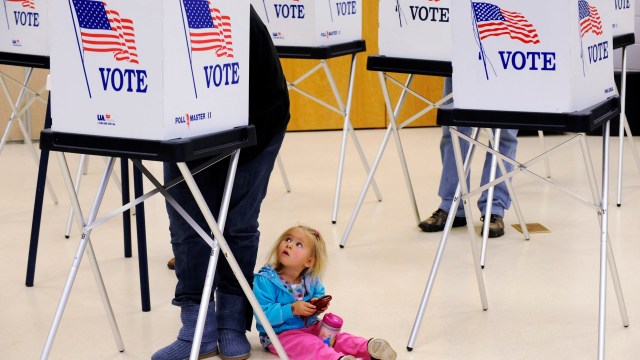Here’s how good liars get away with it

Leemage/Corbis via Getty Images
Being able to get away with a few white lies can be a useful skill. Giving your boss a plausible explanation as to why you’re late to work, for example, can be fairly handy — why do they have to know you just pressed snooze a few too many times?
Some of us get better results than others, of course, when we tell fibs. But those who think they’re better at lying than average seem to have a few things in common, according to new research published in PLOS One.
To understand what makes a good liar, Brianna Verigin from Maastricht University and colleagues surveyed 194 participants on their lying habits.
First, participants were asked to rate how good they were at deceiving others on a scale of one to ten. They then estimated how many lies they had told in the last 24 hours, and responded to multiple-choice questions about the kinds of lies they had told (e.g. white lies, exaggerations or fabrications), who they had lied to and how they had lied (e.g. face to face, over the phone or by text message).
In the second part of the study, participants were asked to share the strategies they use when telling lies, and rate how important they felt verbal and non-verbal (i.e. by using body language) strategies were for getting away with fibs. Finally, they were shown a list of strategies, such as providing details someone cannot check or ensuring stories are plausible, and asked to select which they use.
And though previous research has suggested that most people tell one to two lies per day, the results here paint a different picture: that a small number of “prolific liars” are responsible for most of this figure. In fact, 39% of participants reported telling no lies at all, and just six participants were responsible for a whopping 40% of all lies.
The results also showed that those who told more lies felt they were better at deception; high self-reported fibbing ability was also linked to a greater likelihood of telling lies to colleagues and friends, though not to family or authority figures. Those who see themselves as good liars were also more likely than poor liars to do it face to face, and white lies were the most frequent form of deception, followed by exaggerations, hiding information, burying lies and simply making things up.
As for strategy, several techniques were frequently used. “Keeping the statement clear and simple” was popular with 17.6% of participants, with “telling a plausible story” (15.1%) and “being vague about details” (13.2%) coming next. Good liars were more likely to use a range of strategies, whilst poor liars were far more likely to use avoidance.
“Prolific liars rely … a great deal on being good with words, weaving their lies into truths, so it becomes hard for others to distinguish the difference, and they’re also better than most at hiding lies within apparently simple, clear stories which are harder for others to doubt,” said Verigin
And demographics appear to have a big impact, too. Of those who classified themselves as “poor liars”, 70% were female compared to 30% men; conversely, 62.7% of those who believed they were “good liars” were men compared to 27.3% female.
As with any findings based on self-reporting, these results may need to be taken with a pinch of salt. But this initial understanding of how proficient liars weave their web of falsehoods could be an interesting path to pursue, not least in developing strategies to work out when someone is lying.
The fact liars combine lies with the truth is particularly interesting — though we may feel like we can tell when someone is lying because of the content of what they say, this may actually be a bit more difficult. Developing new ways to detect lies, therefore, may be useful (particularly when it comes to criminal investigations).
But until then, don’t worry — your boss probably believes your train really was delayed.
– Lie prevalence, lie characteristics and strategies of self-reported good liars
Emily Reynolds (@rey_z) is a staff writer at BPS Research Digest
Reprinted with permission of The British Psychological Society. Read the original article.





